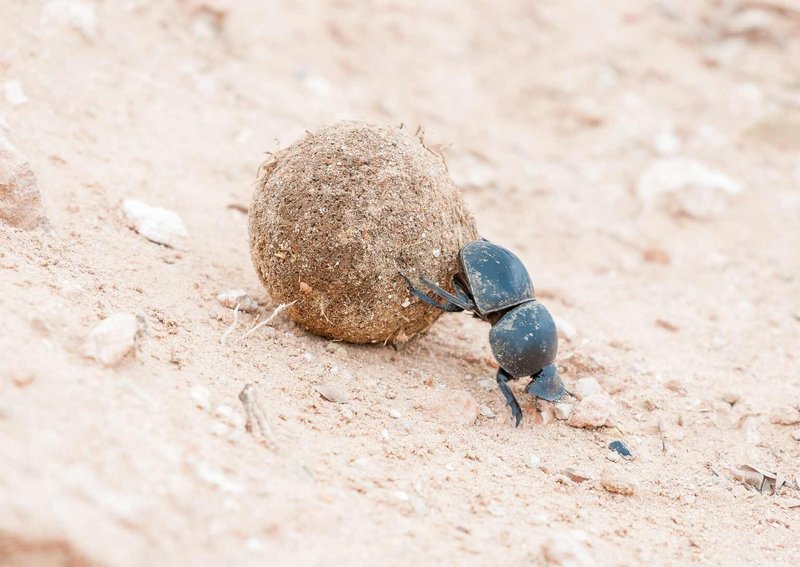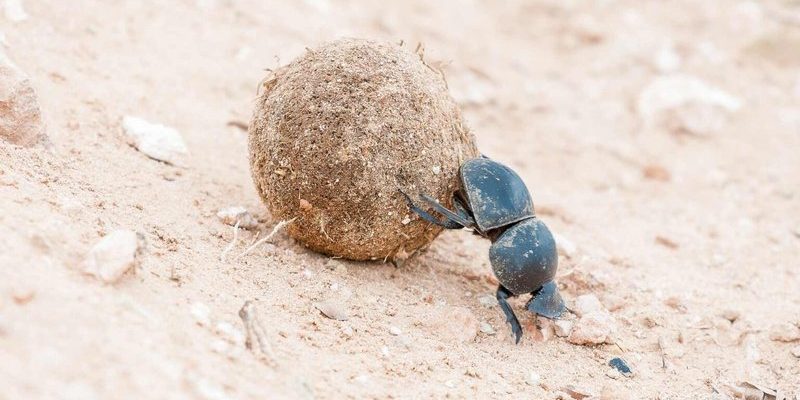
Essentially, dung beetles are nature’s recyclers. They thrive on poop—yes, animal waste—and they help break it down into nutrient-rich soil. Imagine a world where animal droppings piled up, leading to unsanitary conditions and overgrowth. Enter the dung beetle, ready to munch away and help keep the earth clean. In this article, we’ll discover how these beetles benefit ecosystems and why they deserve a little more recognition than they typically get.
What Exactly Are Dung Beetles?
Dung beetles belong to the family Scarabaeidae, and there are about 8,000 species worldwide! They vary in size, color, and behavior, but they all share one common trait: a diet that consists mostly of feces. These beetles have developed unique adaptations to thrive on this diet, making them incredibly effective in their roles. You might be wondering why they don’t just eat anything else. Well, the nutrients in dung provide essential food sources and help them thrive.
There are three main types of dung beetles based on their behavior:
- Tunnelers create tunnels underground to bury dung. They’ll dig deep into the ground, which helps aerate the soil.
- Rollers form balls of dung that they roll away to bury in a safe place. This behavior not only helps them transport food but also spreads the nutrients across the ground.
- Scavengers feed on dung that’s already broken down by other animals or insects.
You might not realize it, but dung beetles are like little gardeners, getting their hands dirty to help create healthier landscapes.
How Do Dung Beetles Benefit Soil Health?
First off, dung beetles contribute significantly to improving soil quality. When they bury dung, they mix it into the ground, enriching the soil with vital nutrients. This process is essential for plant growth—healthy plants mean healthier ecosystems overall.
Also, by breaking down waste, dung beetles encourage the growth of beneficial bacteria and microorganisms. These tiny allies help decompose organic matter, making nutrients more accessible to plants. It’s like a mini ecosystem within the soil that dung beetles help cultivate and maintain.
Furthermore, the act of burying dung can help reduce the spread of pathogens. Instead of letting animal waste linger on the surface, these beetles work tirelessly to hide it away, reducing the chances of diseases spreading among livestock and wildlife. So, in essence, they play a crucial role in promoting a healthier environment for everyone.
Why Are Dung Beetles Important for Climate Regulation?
You might not have thought of dung beetles when considering climate change, but they actually play a part in carbon sequestration. When dung is buried and decomposed by these beetles, it can help reduce greenhouse gas emissions.
Here’s the deal: When dung is left on the surface, it can release methane—an extremely potent greenhouse gas. However, by burying the dung, dung beetles help lock away carbon in the soil. This process mitigates the impact of climate change by keeping harmful gases from entering the atmosphere.
More critically, their activities help maintain soil structure and health, making it easier for plants to absorb water. This is incredibly important in areas facing droughts, as healthy soils can retain moisture better, reducing the need for irrigation.
Dung Beetles and Biodiversity
Biodiversity refers to the variety of life in a particular habitat, and dung beetles significantly contribute to this diversity. They provide food for many animals, including birds, reptiles, and mammals. These creatures depend on dung beetles not just for their direct consumption but also for the habitats they create in the soil.
By breaking down organic matter, dung beetles support a wide range of plants and microorganisms, which, in turn, creates a vibrant ecosystem. If dung beetles were removed, many species would struggle, leading to an imbalance in nature.
Also, dung beetles are excellent bioindicators. This means that their presence can indicate the health of an ecosystem. If you see a variety of dung beetles in an area, it’s a good sign that the environment is thriving. In contrast, a decline in their populations often signals that something is wrong, such as pollution or habitat destruction.
The Role of Dung Beetles in Agriculture
Farmers often overlook dung beetles, but they can significantly impact agriculture. By breaking down manure, they help minimize waste and keep fields cleaner. This not only saves farmers from dealing with excess dung but also enhances soil fertility, which leads to better crop yields.
Additionally, dung beetles can reduce the need for chemical fertilizers. When they enhance soil health naturally, farmers can rely more on the nutrients provided by the beetles instead of synthetic options. This can lead to more sustainable farming practices that are better for the environment.
Furthermore, dung beetles can help manage parasite populations in livestock. By burying manure, they can break the life cycles of parasites that thrive in dung, leading to healthier animals and reduced veterinary costs for farmers. It’s a win-win situation for everyone involved!
Challenges Facing Dung Beetle Populations
Despite their importance, dung beetles face various threats that can disrupt their populations. Habitat destruction, such as deforestation and urban development, is a significant issue. As their natural environments disappear, so do they, leading to fewer beetles in the ecosystem.
Another challenge is the use of chemical pesticides in agriculture. These chemicals can harm dung beetles directly or disrupt their food sources. If farmers use pesticides without considering their impact on beetles, it can result in a decline in these crucial contributors to soil health.
Finally, climate change poses an ongoing threat. As temperatures rise, dung beetles may struggle to adapt. Changes in rainfall and temperature can affect their life cycles, food sources, and habitat. Protecting dung beetles requires a comprehensive approach that promotes biodiversity and sustainable practices.
How We Can Support Dung Beetle Populations
There are several simple ways we can support dung beetles and help them thrive in our ecosystems. First, consider planting native plants in your garden. Native plants create habitats for dung beetles and attract the insects they rely on for food.
Reducing pesticide use is another essential step. If you’re a gardener or farmer, look for organic or environmentally friendly options. This not only helps dung beetles but also supports a healthier ecosystem overall.
Additionally, raising awareness about the role of dung beetles is crucial. Sharing information with friends and family can encourage others to appreciate these small but mighty creatures. Often, the more people know about the importance of dung beetles, the more likely they are to take action to protect them.
In conclusion, dung beetles might not be the glamorous creatures we often think of when considering wildlife, but they play a vital role in our ecosystems. By breaking down waste, enriching soil, and supporting biodiversity, they contribute significantly to a balanced environment. We should recognize their contributions and take steps to protect these incredible little recyclers. After all, a healthy planet is one where every creature, no matter how small, has its place.

